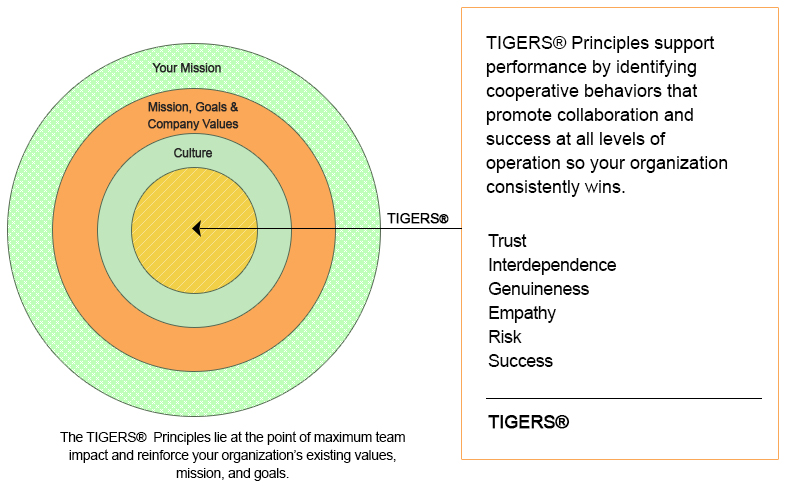 You’ve worked hard to climb the corporate ladder and land in a leadership role. Now what? Teams don’t run themselves. Expert team facilitation and team leadership skills are required. Unless you have those skills already developed, tested and perfected, setting team leadership skills goals will serve you. Why? Without establishing a goal to improve your team leadership skills you will struggle to better your team.
You’ve worked hard to climb the corporate ladder and land in a leadership role. Now what? Teams don’t run themselves. Expert team facilitation and team leadership skills are required. Unless you have those skills already developed, tested and perfected, setting team leadership skills goals will serve you. Why? Without establishing a goal to improve your team leadership skills you will struggle to better your team.
This means focusing on your own growth both personally and professionally. It is common sense that if you fail to focus on your own growth, you will be challenged to help others grow in their positions.
You also benefit from having a clear understanding of where you’d like to be and where you’re currently headed. Training goes a long way in helping you to achieve your professional goals and team leadership skills. This along with other team building strategies create a learning organization and an improvement-based work culture that makes learning and refining new skills a growth opportunity for yourself, employees and the organization you serve.
Team building strategies for improving your team leadership skills and success
With team building strategies, leaders can improve their personal and professional team leadership skills. This translates to improved organizational and team success.
Stop limiting your goals in order to improve your team leadership skills.
You can achieve anything you set your mind to. When you set your goals, the bigger the goal the better just as long as it is remotely realistic.
If you truly want to excel in your business role and in life, look beyond what you think you’re capable of. Think outside the box. Because outside of the confines that you’ve set for yourself, is where frame breaking success resides. This is the type of success that reframes you both as a leader and a human being.
For example, in my family of origin, I was taught to be highly competitive. To achieve anything, I had to compete heavily for it. This meant that my empathy and collaboration skills were low. Therefore, transforming my connection to others (my goal) required boosting my empathy and collaboration skill sets. It made me a much happier and fulfilled leader to do so.
So what are the barriers you have established for yourself? Are the barriers yours or something someone established for you? Did they emerge from your family of origin. Determine if these barriers exist. Because breaking through unrealistic barriers clears the field for you to work toward something big.
Even if you don’t make it all the way to the end, by dreaming big and shooting for something greater, you’ll likely go much further than if you set small and safe goals from the beginning.
 Make a one percent improvement to improve your team leadership skills.
Make a one percent improvement to improve your team leadership skills.
Making a one percent improvement in team leadership skills reminds me of a question. The question is, how do you eat an elephant? The answer is one bite at a time.
One percent may not seem like a lot, but over time, small improvements make a big impact on success. Every day, focus on improving yourself by just one percent – in all areas of your life, including your sleeping, eating, exercising and working habits.
Multiple areas of your life dictate how successful you will be at work. When striving to become one percent better, start with the areas that you know are suffering. For example, if you consistently get less than 7.5 hours of sleep per night, change your routine to add 10 more minutes of sleep. Each week, add 10 more minutes until you’ve committed to a full night’s rest. The change is small at first, but small, attainable changes are easier to commit to and keep up with than several large changes at once.
Make a one percent improvement each day, and you’ll find large, sustainable future results. .
Change your views of failure when improving your team leadership skills.
Sometimes, when failure occurs, it’s easier to stop pursuing goals altogether. If you truly want to be successful, however, you need to recognize that failure is just proof that you’re trying to attain something that’s difficult.
When you make a mistake, what matters is how you handle the situation. If you never try again, then yes, you’ve failed. But if you view the mistake as an opportunity to learn and grow, then you are succeeding. You’ve just learned what didn’t work, so next time you’ll do better.
When you view your failures as opportunities, and you are sure to succeed.
Remember to plan with improving your team leadership skills.
Thinking positively about achieving your goals is often spouted as one of the most important aspects of success. Positive thinking, however, can only get you so far.
In order to reach your goals, you also need to have a sense of the realities and obstacles you will face along the way. And you need to have a plan to overcome them.
For example, to make your dreams a reality, create a strategy that includes both wishful thinking and careful planning. First, identify your dreams and imagine the outcome you’d like to see. Then, identify any foreseeable obstacles and create an execution plan that includes strategies for overcoming those obstacles. With both strategies in place, you can reach your team leadership improvement goals.
Leading your team to success starts with you. If you truly want to be successful, implement team leadership skills strategies to grow yourself personally and professionally. Once you have achieve a goal or two, then you’ll be prepared to help your team members grow, too.
Helpful strategies include:
- Setting big goals that are outside of your comfort zone;
- Make a one percent improvement on yourself each day;
- Change your views of failure by seeing mistakes as opportunities to grow and learn; and,
- Plan out strategies to overcome foreseeable obstacles on your path to success.
To better your team leadership skills to better your team means focusing on yourself first. This enables you to be a superior team leader with the capacity to help your team members grow as individuals with both personal and professional improvement outcomes.
Care to dig deeper into this team leadership skills conversation?
We found the following to add value to the conversation:
- Why NOT Think Big?
- Mistakes Improve Problem Solving Success
- The Power of 1 Percent Better
- 8 Things To Remember When You Fail (So You Can Bounce Back Better Than Before)
- Positive Thinking Is an Obstacle to Achieving Your Goals
- 6 Principles That Build High Impact Teams Self Study Program for Managers
Copyright, TIGERS Success Series, Inc. by Dianne Crampton
About TIGERS Success Series, Inc.
 TIGERS® Success Series provides a comprehensive, multi-pronged and robust system for improving both your work environment and profitability.
TIGERS® Success Series provides a comprehensive, multi-pronged and robust system for improving both your work environment and profitability.
We specialize in training your managers in group facilitation methods that build workforce cooperation and high performance team dynamics. Scaled to grow as your organization and leadership performance grows, our proprietary Team Behavior Profile and Management training workshops are based on the six principles we have found to be the right mix to make this happen.
The TIGERS 6 Principles are Trust, Interdependence, Genuineness, Empathy, Risk and Success. Born from our many years of business, psychology, and educational group dynamic research, and subsequent four years of independent evaluation, we instill and sustain behaviors that improve work group performance and talent retention for measurable ROI.
TIGERS has served committed leaders who desire enhanced cooperation among departments, teams, managers and individual employees. This heightened level of cooperation leads to improved revenue, purpose, commitment and impact. Employees quit companies because they don’t get along with leaders and co-workers. Work culture refinement and behaviors that build strong relationships erase this trend remarkably fast.
For more information or to request a presentation to your group or association, call 1+541-385-7465 or visit https://corevalues.com .